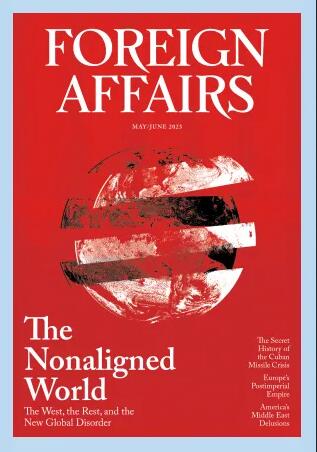七巨头建立的历史方面
IF 6.3
2区 社会学
Q1 INTERNATIONAL RELATIONS
引用次数: 0
摘要
这项研究的相关性受到许多历史和现代方面的制约。特别是,通过揭示创建国际组织的问题,有可能了解该组织的职能,以及该组织在历史事件和现代性背景下存在的目的。该研究的目的是突出的先决条件和创建的国际组织七国集团(也被称为七国集团)的历史,以调查该组织的影响和意义,无论是在过去和现代国际关系的背景下。科学的方法是基于对其他研究和出版物的系统分析方法,以及对文件的分析,特别是国际条约、备忘录等。此外,使用了历史和比较,历史和系统方法,这使得确定组织在一般历史过程中的位置成为可能。科学研究的主要成果应考虑七国集团成立的先决条件及其结果的定义,即:该组织的活动和意义,以及在历史和现代背景下国际组织的作用的定义。在研究过程中获得的结果的实际应用可以作为解决许多史学和政治学问题的工具。特别是,研究可以帮助解决发达国家与发展中国家的州际关系问题、发达国家政治经济一体化问题、西方国家的相关性和影响力丧失问题、发展中国家影响力的增长问题、G7格式的相关性及其被G20格式取代的问题等。本文章由计算机程序翻译,如有差异,请以英文原文为准。
Historical Aspects of the Establishment of the Great Seven
The relevance of the study is conditioned by many historical and modern aspects. In particular, by revealing the issues of creating an international organisation, it is possible to understand what functions the organisation had, and the purpose of the organisation's existence against the background of historical events and modernity. The purpose of the study is to highlight the prerequisites and history of the creation of the International organisation Group of Seven (also known as G7), to investigate the influence and significance of this organisation, both in the past and in the context of modern international relations. The scientific approach is based on methods of systematic analysis of other studies and publications, and analysis of documents, in particular, international treaties, memoranda, etc. In addition, historical and comparative, historical and system methods were used, which allowed determining the place of the organisation in the general historical process. The main results of scientific research should be considered the definition of both the prerequisites for the establishment of the Group of Seven and its results, namely: the activities and significance of the organisation, and the definition of the role of an international organisation in historical and modern contexts. Practical application of the results obtained in the course of research is possible as a tool for solving a number of both historiographical and political science problems. In particular, the study can help solve the problem of interstate relations between developed countries and developing countries, the problem of the political and economic unity of developed countries, the problem of relevance and loss of influence of Western countries, and the growth of influence of developing countries, the problem of the relevance of the G7 format and its replacement with the G20 format, etc.
求助全文
通过发布文献求助,成功后即可免费获取论文全文。
去求助
来源期刊

Foreign Affairs
INTERNATIONAL RELATIONS-
CiteScore
4.80
自引率
0.00%
发文量
2
期刊介绍:
Founded in 1922, Foreign Affairs is a prominent American magazine that focuses on international relations and U.S. foreign policy. It is published by the Council on Foreign Relations, an esteemed nonpartisan think tank and membership organization dedicated to analyzing U.S. foreign policy and global affairs. While the print magazine is released every two months, the website offers daily articles and publishes anthologies every other month.
 求助内容:
求助内容: 应助结果提醒方式:
应助结果提醒方式:


